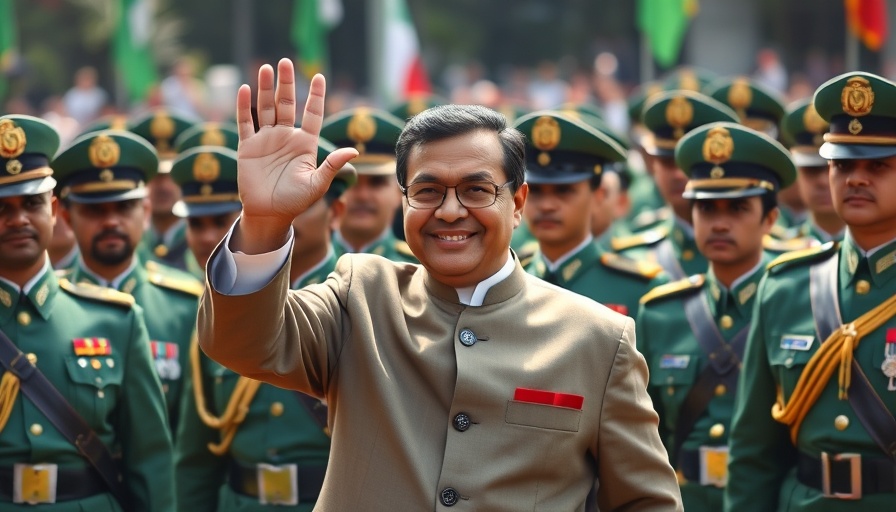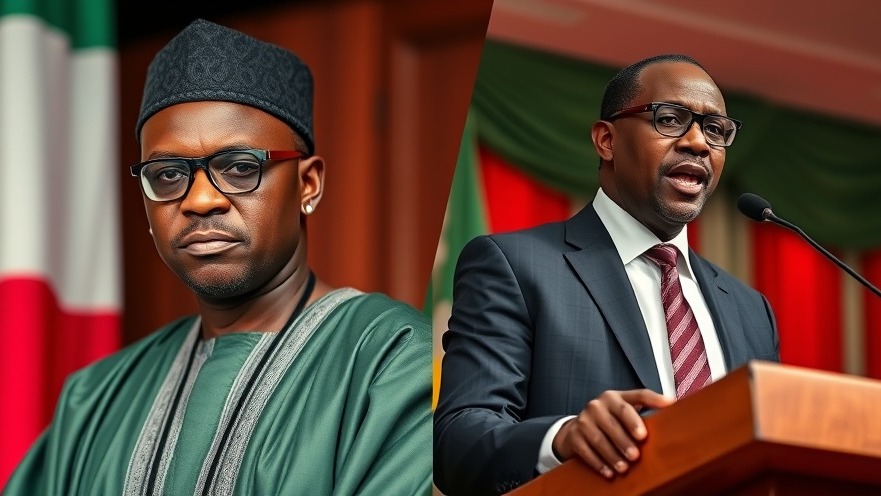
Assessing President Tinubu's Two-Year Tenure: A Mixed Bag
May 29 marks the second anniversary of President Bola Ahmed Tinubu's administration in Nigeria, generating mixed reactions across the political spectrum. As governmental evaluations are crucial for citizens to understand their leaders’ effectiveness, discussions surrounding President Tinubu's performance have aroused significant interest, especially concerning economic reforms, security, and infrastructure development.
In 'Evaluating President Tinubu's First Two Years in Office,' the discussion dives into achievements and criticisms of his administration, exploring key insights that sparked deeper analysis on our end.
Major Strides in Infrastructure Development
Under President Tinubu's leadership, various infrastructural projects have gained momentum. These include significant investments in roads, bridges, and power sectors. Securing loans and funding has facilitated the execution of these developments, reflecting an urgent approach to improve Nigeria’s crumbling infrastructure.
However, critics argue that these projects, while visually impressive, do little to alleviate the pressing poverty and economic malaise facing ordinary Nigerians. For instance, while monumental bridges and roads represent progress on paper, they seemingly divert attention from more pressing human capital development needs.
Economic Policies Under Scrutiny
Economic reforms undertaken by the Tinubu administration have prompted criticisms largely focused on rising inflation and the cost of living. Observers note that immediate responses to these policies, such as the removal of subsidies, have dramatically impacted ordinary citizens. The price of staples has risen substantially, making it increasingly difficult for families to meet basic needs.
As various speakers in the video aptly pointed out, while the government presents impressive figures regarding infrastructural budgets, the impact on the average citizen's life often remains elusive. The argument that economic policies can be described as effective based on statistics alone privileges a misleading narrative, detracting from the observable day-to-day struggles of many Nigerians.
The Human Capital Development Challenge
A focal point during discussions has been the need for prioritizing human capital development. Political commentators emphasize that until the government dedicates resources to improve health, education, and welfare systems, economic indicators alone cannot provide a comprehensive view of success.
Moreover, societal responses to governmental shortcomings often highlight significant disillusionment with leadership. As one interlocutor pointedly remarked, investing in human beings is paramount; without addressing these foundations, policies merely reinforce existing economic disparities.
Inadequate Security Measures: A Pressing Concern
The administration's approach to security has been another critical area of concern. With violence and insecurity on the rise across various regions, many citizens feel disillusioned by the government's ability to guarantee their safety. The prevailing narrative suggests that without a focus on both poverty alleviation and effective governance of the security sector, Nigeria might continue to face profound instability.
As previously mentioned, many believe that robust security measures should be tied to economic empowerment. When citizens experience acute poverty, insecurity is likely to increase, creating a vicious cycle. Thus, discussions surrounding strategic government reforms often circle back to the interconnection between securing the populace and delivering economic prosperity.
The Role of Judiciary and Governance Effectiveness
In the context of governmental performance, the judiciary's role cannot be understated. The judiciary is viewed as a critical arbiter in protecting the rights and aspirations of citizens. However, some voices question the system's efficacy, particularly after an election season riddled with allegations of malpractice and inconsistent judicial decisions.
The increasing perception that the judiciary may not be fulfilling its role adequately raises concerns over the health of Nigeria’s democracy. Strong, independent judicial governance is tied intimately to effective leadership. A functional judiciary can bolster citizen confidence in state institutions, an essential element for enhancing political stability.
Reflections and Future Outlook
With debates ongoing regarding the current administration's effectiveness, the landscape appears fraught with challenges but also opportunities for re-evaluation. As the administration prepares for the upcoming electoral cycle, the imperative for reform across economic policy, security measures, and judicial integrity must resonate beyond political rhetoric. Only then can President Tinubu's second anniversary be framed positively—not as a mere reflection on infrastructural achievement but as a harbinger of a turnaround in Nigeria's governance narrative.
In conclusion, the first two years of President Tinubu's presidency have highlighted both potential and pitfalls within the Nigerian political landscape. Understanding this dynamic within the broader context of African governance may yield valuable insights for citizens, policy-makers, and analysts alike.
 Add Row
Add Row  Add
Add 


 Add Row
Add Row  Add
Add 

Write A Comment